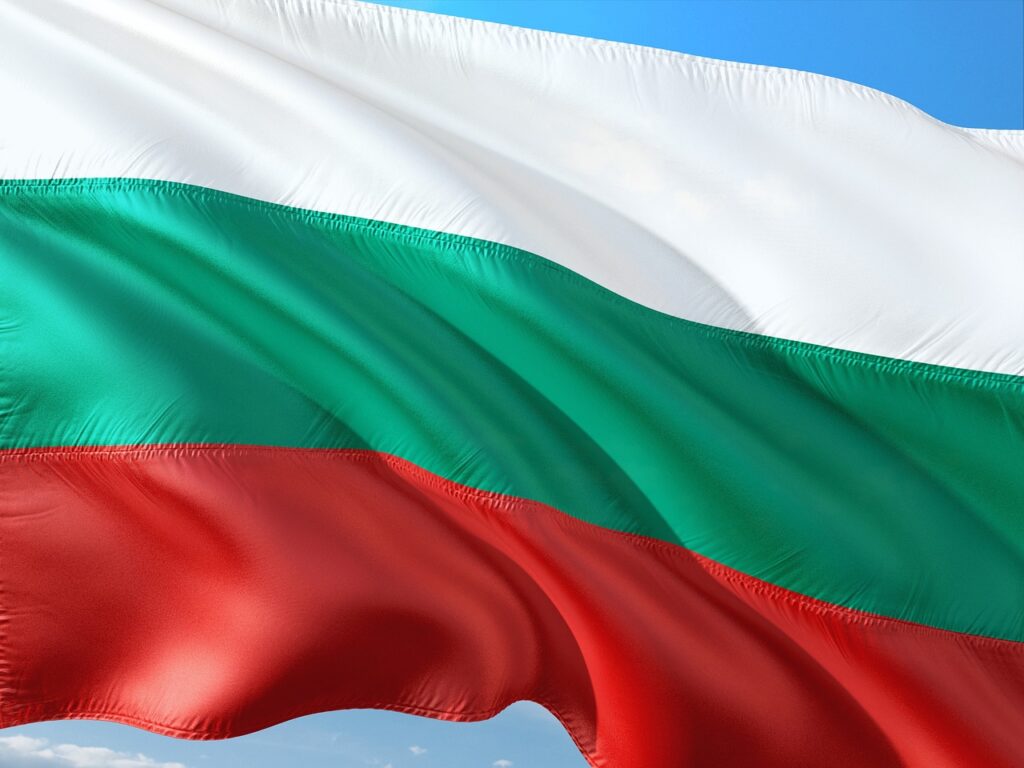
The caretaker government maintained prevention efforts. During the reporting period, NCCTHB informally adopted NAPs for 2022 and 2023 but did not submit them to the Council of Ministers for formal adoption. NCCTHB also convened in-person for the first time in two years and implemented anti-trafficking activities, such as conducting informational and educational campaigns and organizing methodological guidance for local commissions. While the caretaker government allocated 220,500 BGN ($120,490) toward anti-trafficking activities and some agencies funded activities through their own budgets, observers noted overall funding for anti-trafficking activities was insufficient. Observers also reported most laws and mechanisms had not been updated in 20 years and that Bulgarian institutions did not actively engage with European counterparts on new trends and areas of concern to inform best practices and updated legislation for combating trafficking. Furthermore, the caretaker government did not consider trafficking a major problem in Bulgaria and, consequently, lacked political will at the highest levels to address the situation, which was exacerbated by often changing Commission members. NGOs asserted the government’s lack of support undermined the NCCTHB’s role and negatively impacted its staff. In general, NCCTHB struggled with limited financial and human resources, impeding its ability to execute critical functions and work on long-term projects, such as amendments to trafficking legislation and strategic planning, and questioning its sustainability. Since NCCTHB was a political body, some of its members changed with each new government, and, with four caretaker governments in less than two years, there were frequent changes to its structure, most notably its chairperson – assigned from among the deputy prime ministers. Separately, to help resolve chronic staffing gaps in the NCCTHB’s expert-level secretariat, NCCTHB hired three new experts in 2022. In addition, the deputy prime minister, who chaired the NCCTHB, appointed an advisor with international experience in trafficking issues. NCCTHB maintained a permanent working group with anti-trafficking experts from relevant government institutions, civil society, international organizations, and NGOs. NCCTHB devolved regional efforts to 10 local anti-trafficking commissions, comprising judges, prosecutors, law enforcement officials, municipal employees, and other civil servants. NCCTHB funded an academic institute to assess the implementation of the 2017-2021 national strategy. Experts interviewed government officials, NGOs, and independent observers and prepared a report with recommendations for the next five-year national strategy.
In 2022, NCCTHB and the local commissions conducted multiple awareness campaigns and information sessions, including a campaign on sex trafficking targeting students and children. NGOs noted most campaigns did not target vulnerable communities but rather aimed to raise awareness among the general public. Furthermore, NGOs asserted there was no comprehensive prevention strategy that corresponded to current trends, such as online recruitment, and called for more research into this area and the creation of strategies addressing this new trend. The NCCTHB maintained a phone line, email, and website for the public to inquire about or report trafficking-related crimes through which it identified 112 potential trafficking victims. The Ministry of Justice continued to support an NGO-run hotline for victims of violence, including trafficking, allocating 64,980 BGN ($35,510), and received 17 calls related to potential trafficking cases. Separately, the caretaker government supported a dedicated NGO-run hotline through burden sharing, such as transportation costs, and consultative services, including advice on assistance and identification, and promoted the hotline through social media. The hotline referred 31 trafficking-related cases to authorities who identified 27 potential victims. The caretaker government did not make efforts to reduce the demand for commercial sex acts. In 2022, UNHCR, NGOs, and media outlets reported cases of violent pushbacks of asylum-seekers and migrants along the border with Türkiye – an illegal practice under international and EU human rights laws that potentially increased a person’s vulnerability to trafficking, exacerbated distrust of foreign officials, and disallowed for the reporting of any exploitation experienced.
Experts noted systemic issues, such as the lack of resources, limited legal authority to identify and pursue labor trafficking cases, and insufficient training impeded labor officials’ ability to enforce laws effectively. Bulgarian labor laws prohibited employers and labor agents from charging recruitment fees, withholding identity documents, unilaterality changing employment contracts, and delaying payment of workers’ wages. NGOs criticized the government for failing to identify and prosecute cases of severe labor exploitation, alleging the government focused instead on labor law violations that carried administrative sanctions. The General Labor Inspectorate (GLI) conducted inspections to oversee implementation of labor regulations, including subcontractors who employ “posted” or temporary workers. GLI operated two national hotlines for reports regarding labor legislation and workers’ rights violations, respectively. In suspected labor trafficking cases, GLI conducted joint actions with GDBOP. In 2022, GLI received no reports or information that led to trafficking cases. The caretaker government continued outreach work on labor trafficking, including information sessions and workshops with the Romani community, on safe labor migration and protection from labor exploitation. The Bulgarian and German ministries of labor cooperated on a bilateral work program to combat labor trafficking for 2021-2022, including joint anti-trafficking activities, informational campaigns targeting the large number of Bulgarians seeking employment in Germany, and a bilateral referral mechanism for trafficking cases between the countries. The Ministry of Labor and Social Policy maintained labor offices in EU countries with large Bulgarian communities and considered high-risk trafficking destinations; the offices provided information and advice to job seekers on trafficking and reported cases to the NCCTHB for repatriation.

Since the start of Russia’s full-scale invasion of Ukraine, more than 1.25 million Ukrainian refugees arrived in Bulgaria with approximately 51,000 remaining in country. Experts raised concerns the government’s support to Ukrainian refugees had been insufficient and inconsistent. Nonetheless, several agencies and local governments continued to combat trafficking among this vulnerable population. For example, local officials worked with NGOs and international organizations to establish integration centers known as Blue Dot and Light Blue Dot hubs, offering information, legal advice, psycho-social support, identification, and referral to services for refugees fleeing Ukraine. According to an NGO, as of December 2022, these hubs welcomed 3,000-4,000 Ukrainians weekly. Additionally, NCCTHB and an NGO conducted information sessions for Ukrainian refugees, raising awareness on the risks of sex and labor trafficking and labor rights. NCCTHB and UNHCR developed guidelines for the identification of potential victims among Ukrainian refugees and other third-country nationals, and distributed them to front-line personnel. NCCTHB and UNHCR also developed and distributed informational material on preventing trafficking, in Bulgarian, Ukrainian, and Russian. Moreover, SACP cooperated with other agencies and organizations on cases involving Ukrainian children and families, with a particular focus on unaccompanied children, and registered all Ukrainian children, who applied for temporary protection in Bulgaria, in their national registration system, to monitor for signs of abuse or trafficking. In 2022, 147,719 Ukrainian refugees registered for temporary protection status and, in turn, received access to free emergency medical services and access to the labor market. While experts recognized the government’s efforts to register and accommodate refugees, they noted the need to focus on long-term contingency planning and include comprehensive budgeting that matched resources to needs.
from 2023 Trafficking in Persons Report – U.S. Department of State
2023 Trafficking in Persons Report – United States Department of State




